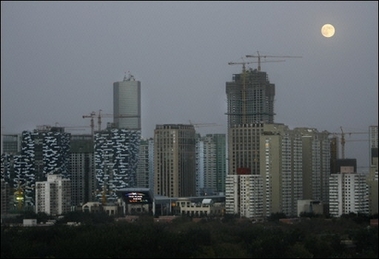WB sees China's economy growing by 10.4% in 2006
(AFP)Updated: 2006-11-15 07:05
BEIJING - The World Bank expects China's economy to grow by 10.4 percent this year and cool to 9.6 percent in 2007, but has warned that such fast paced growth was exacerbating structural imbalances.
The 2007 growth figure was higher than the bank's August prediction that China's economy would grow by 9.3 percent next year, while the bank's growth prediction for 2006 remained unchanged from its original estimate.
|
|
Beijing needed to shift production from industry to services and rely more on domestic demand, strive for more even economic development across its population and environmentally sustainable growth, the report said.
"The lower investment growth that the authorities aim for, which is desirable for efficiency reasons, could aggravate the external imbalance if achieved without more consumption growth," Bert Hofman, the bank's lead economist for China, warned in statement.
China's gross domestic product slowed to 10.4 percent in the third quarter after registering an 11.3 percent clip in the second trimester.
The slow down was partially attributed to fixed assets investments that grew by 29.8 percent in the first half of 2006, but slowed to 23.8 percent in the third quarter, the report said.
"The concerns about high investment growth and the pattern of growth have to be addressed by structural reforms," Louis Kuijs, the main author of the report said.
"The underlying causes of high investment can be tackled through better pricing of energy, resources, land and environmental damage, higher interest rates (and) limiting retained earnings by better corporate governance."
The government also needed to moderate local governments' incentives to pursue growth, he said.
Overall, the quarterly report said the prospects of engineering a soft landing for China's booming economy remained good, while "underlying domestic economic conditions remain favorable to rapid growth."
|
||
|
||
|
|
